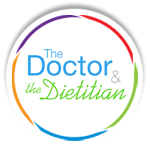 Magnesium is a mineral found throughout nature and is an important electrolyte for our bodies. Ninety-nine percent of our bodies’ magnesium is stored in the bones, muscles, and soft tissues, while only about one percent is concentrated in the blood. Magnesium is needed as a cofactor to many enzyme systems that affect muscle and nerve function, blood sugar control, blood pressure, and many other functions.
Magnesium is a mineral found throughout nature and is an important electrolyte for our bodies. Ninety-nine percent of our bodies’ magnesium is stored in the bones, muscles, and soft tissues, while only about one percent is concentrated in the blood. Magnesium is needed as a cofactor to many enzyme systems that affect muscle and nerve function, blood sugar control, blood pressure, and many other functions.
Unfortunately, magnesium deficiency in the US population is quite common. It is estimated that less than 60% of American adults take in adequate amounts of magnesium in their diets. When we ran our Oak Park Illinois natural medicine branch of Caring Medical, we regularly checked magnesium levels – nearly every patient showed deficiency.
Conditions associated with low magnesium in the body: Amazingly enough, just getting enough magnesium in the diet can alleviate a lot of health issues. Magnesium deficiency has been associated with muscle pain, headaches, heart disease, insulin resistance, type 2 diabetes, ADD, and even Alzheimer’s disease. Symptoms and conditions also include restless leg syndrome, behavioral disorders, mood swings, PMS symptoms, muscle weakness and cramping, headaches, hypertension, nutrient imbalances in calcium, potassium, and vitamin D, insomnia, constipation, and recurring bacterial or fungal infections, to name a few!
Even if you consume a healthy diet, you can still be magnesium deficient due to the low nutrient value of much of our food sources. Therefore, we recommend being mindful to intentionally include magnesium-containing foods in your daily food intake. Top magnesium-containing foods include avocado, figs, bananas, spinach, Swiss chard, wheat bran, dark chocolate, sunflower seeds, cashews, mackerel, flaxseeds, almonds/almond butter, pumpkin seeds, amaranth, yogurt, spirulina, quinoa, black beans, and mung beans.
The daily recommendations for magnesium are 420 mg for men, 320 mg for women, and around 150-200 mg per day for children. Regular consumption of dark greens, nuts, seeds, and legumes is the best way to keep your magnesium levels where they should be.
Sometimes magnesium supplementation is needed, especially if you have cardiac issues, GI issues, poor digestion, or a liver disorder, or if you are an athlete, because of poor absorption and/or requirements may be higher. Over the counter magnesium powders are typically safe and effective.
If you are dealing with sleep issues, restless legs, depression, PMS, or constipation, consider the possibility of a magnesium deficiency. Add more magnesium-containing foods to your diet and consider supplementation if you have malabsorption and/or requirements are higher. Magnesium will provide you with that peaceful, easy feeling!



